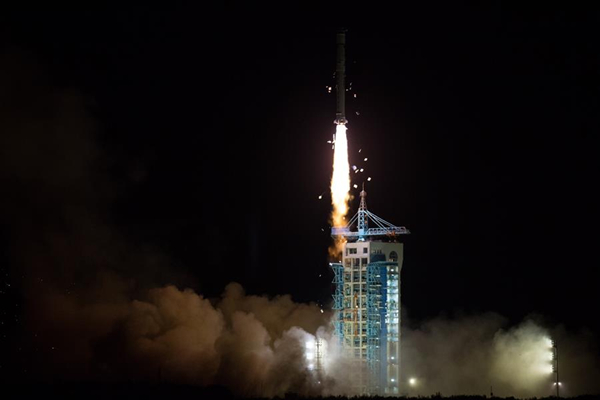Offer to share space station welcomed


Beijing says all UN member states are invited to cooperate on project
VIENNA-China announced on Monday that all member states of the United Nations are welcome to cooperate with China to jointly utilize its future China Space Station.
"The CSS belongs not only to China but also to the world," said Shi Zhongjun, China's ambassador to the UN and other international organizations in Vienna.
"All countries, regardless of their size and level of development, can participate in the cooperation on an equal footing," he said.
Interested public and private organizations, including institutes, academies, universities and private enterprises with a scientific orientation, would be asked to identify their appropriate models of cooperation on the CSS, be it growing a plant in space or offering an astronaut, Shi said.
The CSS, expected to be launched by 2019 and to be completed and brought into full operation by 2022, will be the world's first space station created by a developing country and open for cooperation with all UN members.
Consisting of a core module and two experiment modules, the CSS will have a regular crew of three astronauts and a maximum capacity of six during rotations.
Operating in low-Earth orbit about 400 kilometers high, the CSS will be used in a wide range of research, including space medicine, life sciences, biotechnology, microgravity science, Earth science and space technology.
"Through the vehicle of the CSS, we would like to build a model of sincere mutual beneficial cooperation among countries in the peaceful exploration and use of outer space," Shi said.
China stands ready to help other developing countries in space technology, he said.
Priyani Wijesekera, Sri Lanka's ambassador to the UN in Vienna, said the CSS would benefit developing states that lack financial means and expertise to launch such a project.
"It's very interesting, and we are looking forward to cooperating with China," she told Xinhua.
Simonetta Di Pippo, director of the UN Office for Outer Space Affairs, welcomed China's offer to share its "state of the art space program" which is "one of the most holistic and technologically advanced in the world."
"With the global challenges we all face here on Earth, it is therefore important to foster collaboration and cooperation in the field of space activities," she said.
The director said technical advances in space have broad benefits to all mankind, as space is a driver and a tool for sustainable socioeconomic development.
The planned launch of the CSS next year follows the launch of space laboratory Tiangong-1 in 2011.
The core module of the CSS is called Tianhe, or Harmony of the Heavens.
Maria Assunta Accili Sabbatini, Italy's ambassador to the UN in Vienna, said the project offers a great opportunity for Italy as the two countries' space agencies have maintained close ties.
"We believe this opens a lot of room for cooperation," she said.
Xinhua
- China planning to raise age limit for blood donors, shorten the minimum interval
- Breakthrough in BMI tech aids patients
- Chinese technique for making ultrathin metal films named top 10 scientific breakthroughs
- Former senior political advisor of Sichuan sentenced to 14 years
- Beijing has undergone dramatic improvements since 2017's revamped development plans
- AI open alliance launched to pool resources for innovation and application





































